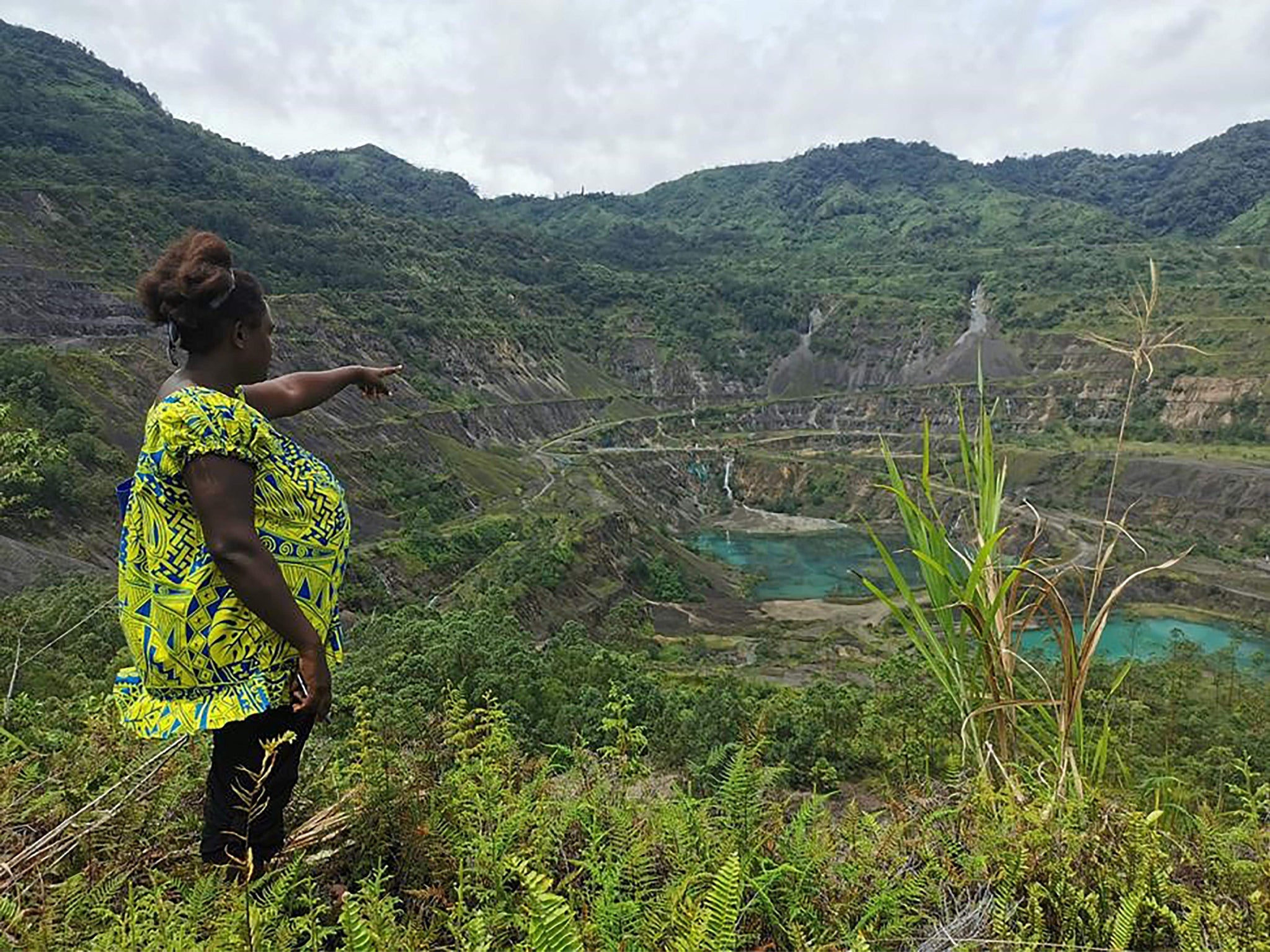Rio Tinto: Mining giant accused of poisoning rivers in Papua New Guinea
The gold and copper mine has left behind a toxic legacy

The Anglo-Australian mining giant Rio Tinto is fending off allegations that an abandoned gold and copper mine in Papua New Guinea, vacated two decades ago, is leaking poisonous waste into the region's rivers.
More than 150 people living in the island of Bougainville have filed a complaint with Australian authorities, claiming the mine has left a toxic legacy of poisoned water, polluted fields and a ruined river valley.
Waste from the Panguna mine has caused ongoing problems for the 12,000 residents nearby who claim the abandoned site is a violation of human rights.
Theonila Roka Matbob, traditional landowner and member of the local parliament of Bougainville, said residents are “living with the impacts of Panguna every day.”
Ms Matbob said in a statement released by the Human Rights Law Center: “Our rivers are poisoned with copper, our homes get filled with dust from the tailings mounds, our kids get sick from the pollution.”
She added: “Every time it rains, more waste washes into the rivers, causing flooding for villages further downstream. Some communities now have to spend two hours a day walking just to get clean drinking water because their nearby creeks are clogged up with mine waste.”
The Panguna mine was run throughout the 1970s and 80s by the Rio Tinto subsidiary Bougainville Copper Limited (BCL), and was one of the region’s largest copper and gold mines.
Anger in the local community over the site's environmental damage, disputes over the distribution of profits and the outbreak of the Bougainville civil war, during which an estimated 20,000 Bougainvilleans died, forced the mine's closure over two decades ago.
Rio Tinto cut ties with BCL in 2016 and handed a 53 per cent stake of the mine to the government of Papua New Guinea but many feel the company should still take responsibility for cleaning up the site.
Following the overwhelming people’s vote for independence in Bougainville in December 2019, there has been renewed interest in the future of the site and in the possibility of reopening Panguna and establishing new mines in the region.
“These are not problems we can fix with our bare hands,” Ms Matbob said. “We urgently need Rio Tinto to do what’s right and deal with the disaster they have left behind.”
A spokesperson for the mining firm told the Sydney Morning Herald that they’re willing to speak to the current owners of the gold and copper mine as well as the local community.
“We are aware of the deterioration of mining infrastructure at the site and surrounding areas, and claims of resulting adverse environmental and social, including human rights, impacts,” they told the newspaper.
Earlier this month, Rio Tinto’s CEO Jean-Sébastien Jacques and two other senior executives resigned amid controversy following the destruction of a sacred 46,000-year-old Aboriginal site in Pilbara, western Australia.
The advocacy group is petitioning the Australian government to investigate Rio Tinto over their abandonment and a complaint has been filed with the Anglo-Australian minder and federal Treasury Department.
The group claims pollution as a result of the mine has put both the community and livelihoods at risk and that Rio Tinto should assist in the long term clean up and rehabilitation process.
The complaint has been signed by 156 Bougainville residents who urge commitment from the company to contribute to an independent fund and address the health and safety dangers caused by the mine.
Join our commenting forum
Join thought-provoking conversations, follow other Independent readers and see their replies
Comments




Bookmark popover
Removed from bookmarks